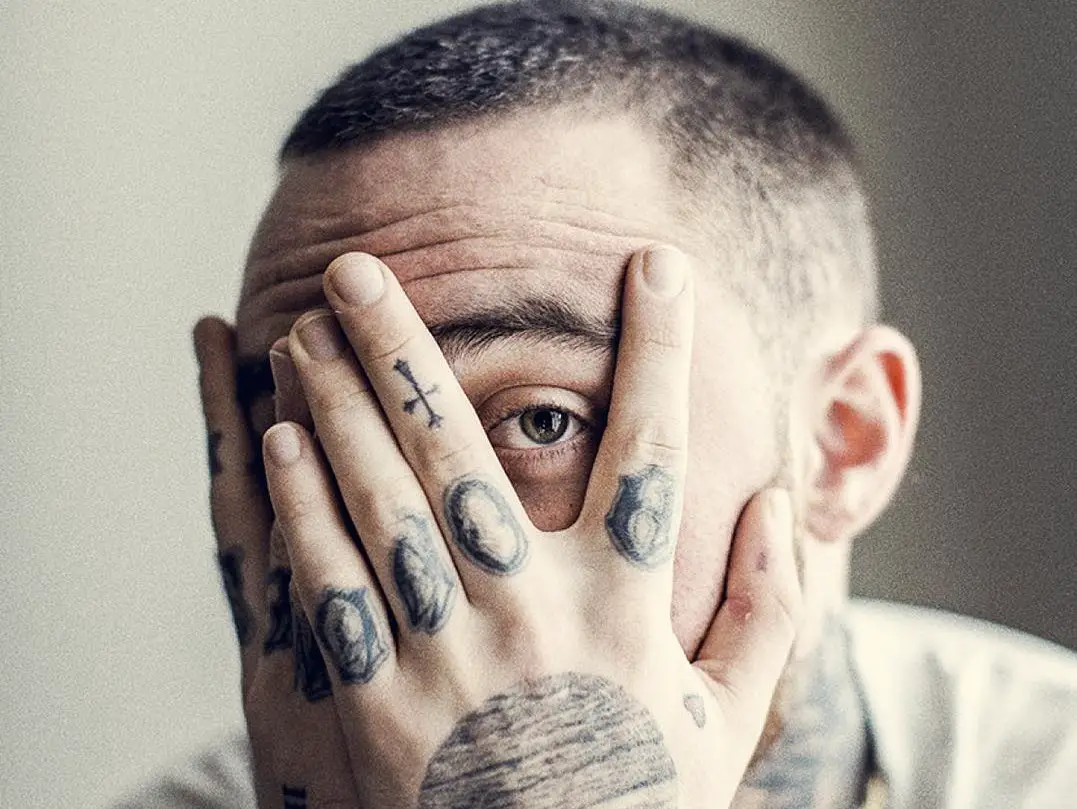Artist and hip-hop legend Mac Miller tragically passed away on September 7, 2018 from an accidental drug overdose. In the early days of his career, he was known for upbeat tracks like “Best Day Ever” and “Party on Fifth Ave.” Mac Miller was one of the most ambitious and hard-working artists of his generation.
He died at the devastatingly young age of 26, but, in that time, he had released five studio albums, 13 mixtapes and 40 singles. Those numbers and the release of the new posthumous tracks, “Time” and “That’s Life,” make fans question how many more undiscovered masterpieces are collecting dust in his discography.
Mac Miller’s posthumous career is in full swing, but, to lifelong fans of the rapper, it seems to be a mere continuation. He has always alluded to his dwindling time on earth in his music, and he poured his battles with substance abuse and inner demons into his songs throughout his career. The reality of Mac Miller predicting his own overdose within his music has a whole different, sorrowful meaning to fans when they listen to his lyrics after the fact.
The prospect of Mac Miller’s death, paired with his undying will to live, comes alive on his posthumous track, “That’s Life.” The song is a collaborative track featuring rapper and producer 88-Keys and singer Sia.
“That’s Life” was recorded in 2015 when Miller was making his third studio album, “GO: OD AM,” and the unreleased track was previously leaked under the title of “Benji The Dog” in May 2019. The full version is officially out now, with Miller’s parent’s blessing in tow. Miller perfects the complicated contrast between immense desolation and resilient optimism.
The soulful piano beat, rich vocals and blaring horns make listeners feel like they are attending a gospel service. Mac Miller’s voice sounds ominous yet comforting; his raspy and stripped sound creates an illusion of his emotions being released into the track, like the departure of a hot air balloon attempting to kiss the sky.
Miller doesn’t waste a single bar on “That’s Life.” He immediately addresses his ongoing problems with substance abuse.
“They told me, don’t make a promise you can’t keep,” he sings. “All the drugs in your system, you can’t sleep. She asked me why the long face? How I spent $350 on this entree. I drown my sorrow in that bottle. Today is full of regret, find forever in tomorrow. Man up, what’s the problem?”
It seems like Mac Miller is looking into a mirror as he laments to himself about using drugs as a coping mechanism to help him deal with his depression. Nonetheless, Miller remains full of hope and believes in the brightness of a new day. His sanctuary is the idea of an immortal tomorrow that will be the rainbow to the storm that he is enduring.
In the chorus, Miller sounds like he is giving solace to his fans as they mourn his death: “Yeah, I know it seems a little bit strange sometimes (yeah, yeah). Everybody live a little, everybody die (yeah, yeah). That’s life, whatcha gonna do. That’s life, baby, I would spend it all with you.”
The rapper, long before his untimely death, made fans feel supported by delivering honesty and vulnerability within his lyrics. He reassures fans as he looks down at them from up in the clouds and continues to sing truth.
“I’m headed to the other side, where the grass is always greener. See, my cash got deeper, and my morals disappeared.” Sia then chimes in with melodic vocals and embraces his struggles. “Now, I wish I could take all your pain, but when the toxin is fame — the drugs they don’t fill the hole, nah. Knew that I’d be your home. Knew that you weren’t alone.”
The ending of the song turns into a recognition of all who are struggling with mental health issues and drug abuse, and Sia’s vocals wind down like a sunset. The song conveys the idea of a savior — a lover who will bring peace and feel like home. The theme is the basis for Miller’s other posthumous track that was released in June by artist Anderson Paak’s band, The Free Nationals, and features singer Kali Uchis.
“Time” is a groovy and heartfelt song that mourns a past love of co-dependency. The song makes listeners feel like they’ve entered a different time continuum with the dreamy state of Uchis’ vocals. Uchis sings, “Everybody gets down on luck. Every time you fall, I try to pick you up. But I need reciprocation. You got what I need to get through the night. But can you be my rock, slip and can you pull me up? I just want to be your girl and not your mom, is that so wrong?”
Uchis is referencing the role of having to play caregiver for a partner while you are in a relationship. The pressure to be a hero stifles an individual’s ability to flourish. Miller’s voice is woeful and apologetic as he speaks about his fears of isolation. He recoils from his inability to stand alone in the face of inner demons that might force his love to leave. He raps, “Look at me watering seeds, it’s time to grow. I get out of control when I’m alone. In the end, everything will be fine, that’s by design. Well, I don’t trip, but I slip, I fall. Like I’ve been missing you, still I continue, tied up and tripping up. I’m making the wrong decisions and you sick of it all, but don’t leave me, don’t leave me.”
Miller’s desperation for his love to stay by his side, even though he knows he needs to learn to take care of himself, is heartbreaking. It’s rare for a young, male rapper to be this raw and unguarded in sharing his innermost emotions on love, substance abuse and mental health issues.
Mac Miller’s giving nature and resilient spirit will always surpass the internal war he was fighting. He has bared his soul to his fans through introspection and self-reflection and was willing to put his entire truth and life into his music. The music stands as a timeline, documenting each stage of his life like a movie.
The chilling premonition of Miller foreshadowing his own mortality through his songs is a bitter pill to swallow when hearing his voice on these posthumous tracks. He still tried to reassure and comfort fans on his current mental state in one of his final interviews with Zane Lowe. Mac Miller discussed the last album he would drop, “Swimming,” just a few months before his death.
He spoke on the nurturing relationship he had with his fans, “You get the urge and the itch to tell people, don’t worry, I’m okay. Don’t worry, I’m okay. I have people who care about me and fans that love my music and it’s a beautiful relationship with them. People who have been with me through being a 19-year-old, wide-eyed kid, to being a self-destructive, depressed drug user, to making love music — all these different stages.”
















